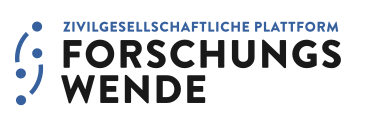Toolbox for transdisciplinary research
At a conference in transdisciplinary research ten years ago, sooner or later somebody would have asked for a definition of transdisciplinarity and for concrete examples of transdisciplinary projects. Over the recent years, to the observation of td-net, this question has become less urgent: Today, scholars agree on a certain variety of understandings and conceptualisations oftransdisciplinarity. Furthermore, ever more project examples are published. The question today is less what transdisciplinary research is, but more how it can be done. By td-net’s toolbox for co-producing knowledge we provide some answers to that question.
What is the purpose of the toolbox?
The purpose of the toolbox is to help inter- and transdisciplinary researchers finding the adequate (mix of) methods for addressing the challenges of co-producing knowledge that they face. For that purpose, td-net provides a series of short method profiles, complemented by information on further reading and reports on how the method is being applied.
What does co-producing knowledge mean?
According to td-net’s understanding, transdisciplinary research involves different perspectives on an issue. Borrowing ideas of Ludwik Fleck, these perspectives can be understood as thought styles held by specific groups of people, i.e. thought collectives. Such thought collectives are for instance biologists, philosophers, farmers or midwives. Processes that involve representatives of different thought collectives jointly coming up with new knowledge are called here processes of knowledge co-production. Such co-production may have different purposes.
What is a method for co-producing knowledge?
The understanding of methods that td-net uses here is rather broad. A method is a structured way of doing something that can be communicated to and reproduced by others. Methods for co-producing knowledge support representatives of different thought collectives in better understanding each other’s mindsets and in relating their thought styles to each other. The methods in td-net’s toolbox differ in various ways. They for example relate to a whole knowledge co-production process or to single specific steps in it. And they differ in how elaborated and formalised they are as well as in terms of the type of thought collectives they address.
How comprehensive is the toolbox?The toolbox does not provide a comprehensive overview of methods for co-producing knowledge. To get the compilation started in a pragmatic way, we first describe methods we are already familiar with. We hope that this first set of methods inspires you to suggest more methods to add.More via: www.naturalsciences.ch/topics/co-producing_knowledge


